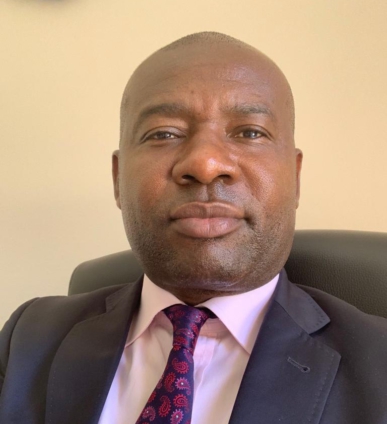The Chief Operating Officer (COO) of the Afrexim Bank, West Africa, Eric Intong has underscored the need for African countries to introduce a common currency on the continent as against the use of the dollar.
This, he argues will help check exchange rate depreciation on the continent.
Speaking at the University of Professional Studies, Accra (UPSA) Law School, Africa Trade Round Table 5, Mr. Intong warned that the implementation of the African Continental Free Trade Agreement (AfCFTA) will face serious challenges if a common currency is not introduced to facilitate trade.
He stressed that the inability of African countries to develop a common currency to trade with, adds more cost to moving goods on the continent.
“Today if I am sitting in Nigeria, and if I want to buy something from Ghana, why should I be paying in dollars? It doesn’t make sense,” he said.
He disclosed that trade assessments undertaken in the West Africa show that pressure on local currencies in the sub-region could drop if common currency is used for trading even among West African nations
“If we stop paying for African trade in dollars that is going to reduce the pressure on our currencies. We have made that estimate and it is at $5 billion annually. This will even be more, once we start operating the data from the Pan-African Payment and Settlement System (PAPSS)”, he said.
Mr. Intong maintained that African countries have the opportunity to learn from best practices across the world.
On his part, the Dean of UPSA Law School, Prof. Ernest Kofi Abotsi called for more financing to make the implementation of the AfCFTA a success.
According to him, trade among African countries will still be low if measures are not put in place to finance movements of goods and people on the continent.
He argued that it is important to get organizations such as the Afrexim Bank and the African Development Bank to advance funding to businesses on the continent through government to make the AfCFTA effective.
“West Africa has seen grandiose projects that went nowhere. And part of the reason they went nowhere is because policies go nowhere in the absence of financing” he said.
“The AfCFTA, frankly is going nowhere in the absence of trade finance. If you don’t have trade financing, there’s no trade, period!”.
Citing Europe as an example, Prof. Abotsi said with effective infrastructural project, African countries can be easily linked to ease the movement of people and goods.
“The reason why people move easily in Europe is because of trade, the political integration of Europe is to allow similar businesses in Europe to interact”.
“In Europe, people wake up in the morning, they are moving flowers from Holland to England. They don’t have to worry so much about so many border bureaucracy issues. It all has to do with similar trades. Now you can’t indulge in trade in the absence of proper financing”.
Latest Stories
-
Disinformation, misinformation making our work tedious – NCCE
7 mins -
COP29: Africa expected more in new Climate Finance deal
10 mins -
Vice President Bawumia commends Lands Commission for digitalising its operations
12 mins -
By age 7, I knew everything I wanted to do in life – KOD
14 mins -
10 GWCL customers in Ashanti north celebrated for loyalty, timely water bill payment
14 mins -
Forex debt crisis at ECG: A threat to Ghana’s sovereignty and economic stability
16 mins -
Donewell Life Assurance rebrands to Pinnacle Life Insurance: A new era of excellence
47 mins -
NDC blames ECG’s poor revenue collection for energy sector challenges
49 mins -
MEST Africa, Mastercard Foundation celebrate EdTech Innovations at Demo Day in Accra
53 mins -
AWA reaffirms commitment with FOD Walk during Safety Week
57 mins -
Kuami Eugene hopeful he’ll be first Lynx artiste to survive after leaving the label
1 hour -
Akufo-Addo seeks to use Bawumia to complete Akyem agenda – Asiedu Nketia alleges
1 hour -
National Cathedral: CHRAJ recommends investigation, contract cancellation, possible prosecution
1 hour -
Dr James Orleans-Lindsay wins Man of the Year at 9th EMY Africa Awards
1 hour -
Medical Council to enforce specialist distribution nationwide
2 hours

